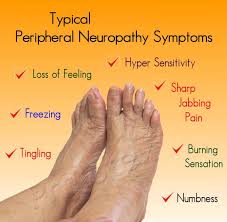Gingivitis Cure: Stop Bleeding Gums

The anguish of bleeding gums - a symptom that can be both alarming and embarrassing. Gingivitis, the inflammation of the gums, is a common condition that affects millions of people worldwide. While it’s often perceived as a minor issue, untreated gingivitis can lead to more severe problems, such as periodontitis, tooth loss, and even systemic diseases like diabetes and heart disease. Fortunately, there are effective ways to cure gingivitis and stop bleeding gums. In this article, we’ll delve into the causes, symptoms, and treatments of gingivitis, as well as provide expert advice on how to prevent and manage this condition.
Understanding Gingivitis: Causes and Symptoms
Gingivitis is primarily caused by poor oral hygiene, which allows plaque - a sticky film of bacteria - to build up on teeth. If left unchecked, plaque can lead to inflammation of the gums, causing them to become red, swollen, and prone to bleeding. Other factors that contribute to gingivitis include:
- Poor diet: Consuming high-sugar and high-acid foods and drinks can exacerbate plaque buildup and gum inflammation.
- Smoking: Tobacco use is a significant risk factor for gingivitis, as it reduces blood flow to the gums and impairs the immune system.
- Hormonal changes: Fluctuations in hormone levels during pregnancy, menopause, or puberty can affect gum health.
- Genetics: Some people may be more susceptible to gingivitis due to their genetic predisposition.
Common symptoms of gingivitis include:
- Bleeding gums, especially during brushing or flossing
- Red, swollen, and tender gums
- Bad breath (halitosis)
- Receding gums
- Loose teeth
Treating Gingivitis: Professional and Home Remedies
The good news is that gingivitis is curable, and treatment is often straightforward. Professional dental cleanings and good oral hygiene practices can help eliminate plaque and reduce inflammation. Here are some effective treatments for gingivitis:
- Professional dental cleaning: A dental hygienist or dentist will remove plaque and tartar from teeth, both above and below the gum line.
- Antibacterial mouthwash: Using a mouthwash containing chlorhexidine or essential oils can help reduce bacteria and inflammation.
- Good oral hygiene practices: Brushing teeth at least twice a day with a fluoride toothpaste and flossing once a day can help prevent plaque buildup.
- Dietary changes: Eating a balanced diet rich in fruits, vegetables, and whole grains can help reduce inflammation and promote overall health.
In addition to professional treatment, there are several home remedies that can help alleviate symptoms of gingivitis:
- Saltwater rinse: Rinsing with warm salt water several times a day can help reduce inflammation and kill bacteria.
- Hydrogen peroxide: Using a hydrogen peroxide mouthwash can help reduce plaque and gum inflammation.
- Aloe vera: Applying aloe vera gel to the gums can help soothe and reduce inflammation.
It's essential to note that while home remedies can be helpful, they should not replace professional dental care. Regular dental check-ups and cleanings are crucial for preventing and managing gingivitis.
Preventing Gingivitis: Tips and Tricks
Prevention is always better than cure, and there are several ways to reduce the risk of developing gingivitis:
- Brush and floss regularly: Maintaining good oral hygiene practices can help prevent plaque buildup and gum inflammation.
- Use an electric toothbrush: Electric toothbrushes can be more effective at removing plaque and improving gum health.
- Avoid sugary and acidic foods: Limiting consumption of sugary and acidic foods and drinks can help reduce plaque buildup and gum inflammation.
- Don’t smoke: Quitting smoking can significantly reduce the risk of developing gingivitis and other oral health problems.
What is the best way to prevent gingivitis?
+Preventing gingivitis requires a combination of good oral hygiene practices, a balanced diet, and regular dental check-ups. Brushing and flossing teeth regularly, using an electric toothbrush, and avoiding sugary and acidic foods can help reduce the risk of developing gingivitis.
Can gingivitis be cured at home?
+
Is gingivitis a sign of a more serious health problem?
+Gingivitis can be a sign of a more serious health problem, such as periodontitis, diabetes, or heart disease. If left untreated, gingivitis can lead to more severe oral health problems, so it's essential to seek professional dental care and address any underlying health issues.
Conclusion
Gingivitis is a common and treatable condition that can be managed with good oral hygiene practices, professional dental care, and a balanced diet. By understanding the causes and symptoms of gingivitis, seeking professional treatment, and preventing the condition through good oral hygiene practices, individuals can reduce their risk of developing this condition and promote overall oral health. Remember, a healthy smile is just a few brushing and flossing sessions away!


